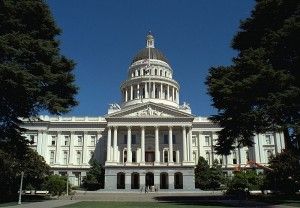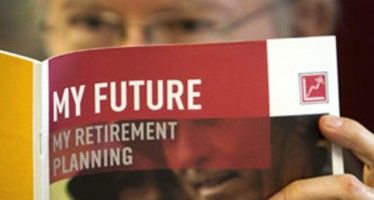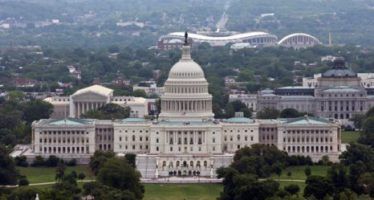Look for 5 Things in May Revise
By JOHN SEILER
Next Monday, Gov. Jerry Brown will release his “May Revise” to his January budget proposal for fiscal year 2011-12, which begins on July 1. Looking beyond the hoopla and spin, here are the top five things to look for:
Economy
1. A realistic assessment of the U.S. economic situation. Californians like to say the state is “the world’s seventh largest economy.” Actually, we’re one-ninth of the world’s largest economy. Actions by the federal government directly affect us.
The current economic “recovery” is the slowest since the end of World War II. Yesterday, President Obama admitted, “It’s gonna take us several years for us to get back to where we need to be.”
Before the Great Recession struck in 2007, Federal Reserve Board Chairman Ben Bernanke said that the national real-estate market never in history had declined overall, and never would. Then it did. And at his historic first press conference on April 27, he admitted:
That being said it is a relatively slow recovery.
A factor is that this is triggered by a double dip in the housing market and the housing market remains very weak.
And under normal circumstances construction, both residential and nonresidential, would be a big part of the recovery process. There are a number of other factors — oil prices and other things — there are a number of factors holding the recovery back.
Confirming that, today the Los Angeles Times reported:
April home sales in Southern California were down 9.2% from a year earlier. The figure, the lowest for April in three years, was 25.4% below the month’s average since record-keeping began in 1988, DataQuick of San Diego reported Thursday.
It’s pretty clear that the whole U.S. economy well could dip into a second part of a double-dip recession. The May Revise should reflect that.
Inflation
2. Inflation is hurting everyone. As all Californians know when they fill up their cars or buy groceries, 1970s-style inflation is back. That affects personal paychecks as well as government budgets. The state and local government’s vast fleets of cars and trucks run on the same gas and diesel fuel that has doubled in price the past two years for everybody.
In particular, as I wrote in March, high food and fuel costs are straining local school district budgets.
The May Revise should include a realistic assessment of how much inflation is hurting personal, business and government budgets.
Dynamic Economy
3. The dynamic nature of the economy. People and businesses are not static. When government does something — good or bad — they respond. Higher taxes and tighter regulations hamper business growth. Lower taxes and looser regulations promote business growth.
That’s what the whole controversy of businesses moving to Texas is about. Texas has reasonable regulations and no state income tax. California has absurd regulations and one of America’s highest state tax climates.
Brown once understood this. Maybe he still does. His 1992 presidential campaign include a call for a “flat tax,” meaning everyone would pay the same low tax rate. Such a reform would streamline tax preparation and collection, while lessening everyone’s tax burden. Economic growth would soar.
Unfortunately, 19 years later as governor his policies have hardened along with his arteries.
Yet it’s crucial that the May Revise included something about how the state economy is dynamic and responds to government actions, good or bad.
Jobs, Jobs, Jobs
4. Jobs creation is crucial. So far in the discussion about the budget, the obsession of Brown, Democrats who control the Legislature and pro-tax groupies in the media is that tax increases are the answer to every state problem. Budget Nirvana is being suppressed only by the refusal to increase taxes by those mean old Republicans.
But what about the massive numbers of Californians who are out of work? The official unemployment rate for California was 12 percent in March. That was second worst of the states, behind only Nevada’s 13.2 percent — which is improving faster.
And that’s only the official rate. If you include people who have stopped looking for work and those who are under-employed, then California’s unemployment rate soars to an incredible 22 percent (according to the U-6 number tallied by the U.S. Bureau of Labor Statistics).
Moreover, the high unemployment rate also means more Californians are using state services, such as food stamps and welfare, which drives up the state budget deficit.
The May Revise at least should at least acknowledge that Californians are hurting for jobs. They want to work, but state tax and regulatory policies won’t let businesses create enough jobs.
Unions
5. Union influence on the May Revise. In the first four months of his second go around as governor, Brown has shown little sign of the quirky, innovative governor of three decades ago. He’s become little more than a union hack, especially on the budget. His major action has been do demand a $12 billion tax increase be put before voters who already defeated tax increases in 2009 and 2010.
The May Revise will show if that is to continue being his modus operandi. It’s true that the unions provided essential campaign financing for his election victory last year.
But as fabled Assembly Speaker Jesse Unruh famously once said of lobbyists, “If you can’t eat their food, drink their booze, [expletive] and then vote against them, you have no business being up here.”
The May revise will show whether Gov. Jerry Brown finally is ready to shun the unions that elected him, but whose tax-increase demands would be ruinous — and start governing for all the people of the state.
Related Articles
CA senator seeks audit of state Obamacare exchange
A California state senator is seeking to audit the state’s Obamacare exchange after a CalWatchdog.com story revealed that $1.37 million was spent on
Union appeal focuses attention on pension precedent
SACRAMENTO – A decision by four Marin County public-employee associations to appeal a pension-related case to the California Supreme Court
Congress could nix California retirement program
The House of Representatives voted to axe California’s planned retirement savings program, throwing the future of it and similar





